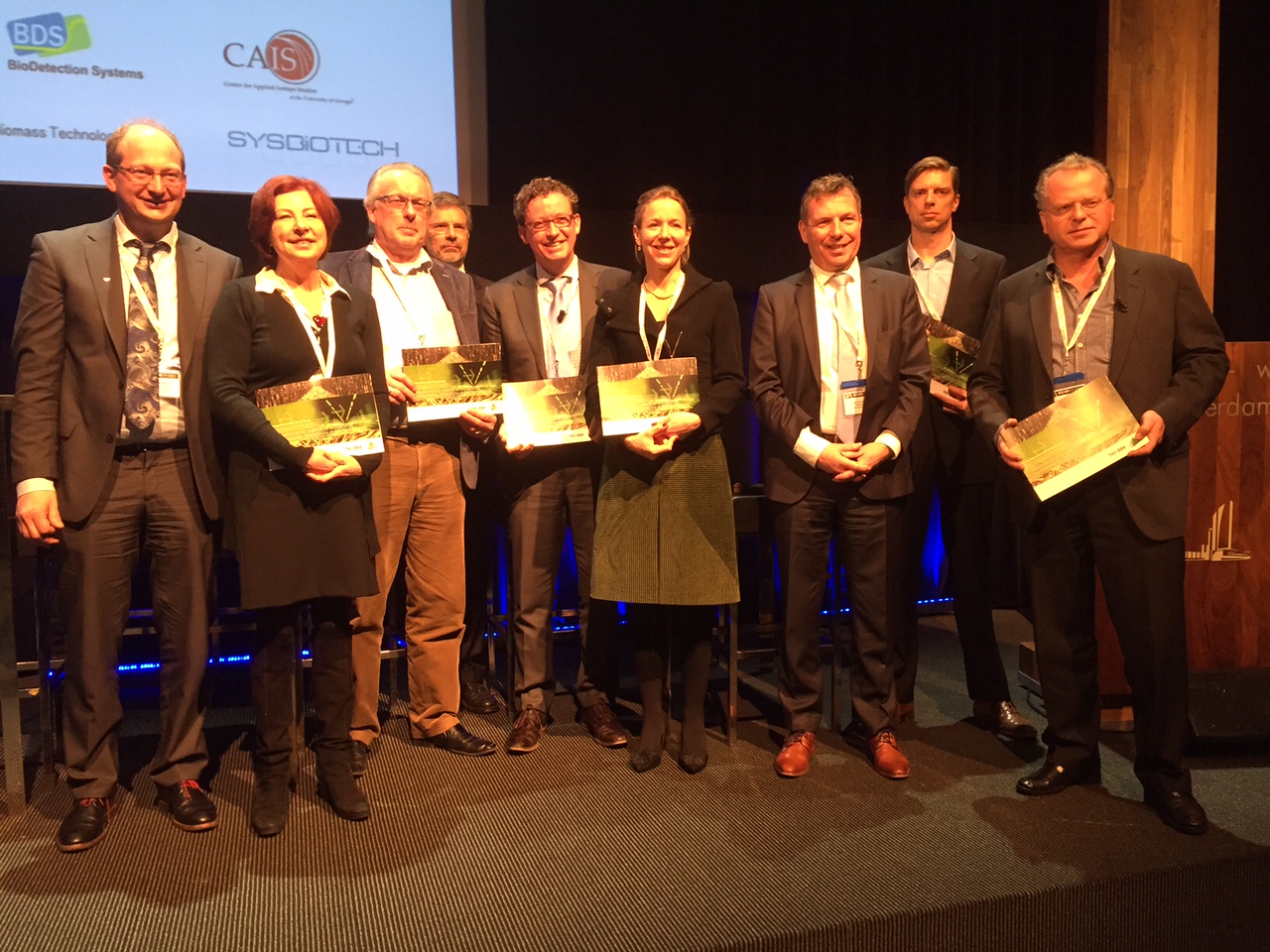Stientje van Veldhoven (Tweede Kamer) was offered a first copy. She underlines the importance of the study: “We can solve today’s challenges regarding climate change and resource scarcity and create jobs and economic growth while doing it. Now is the time for the government to really give the biobased economy a boost so that together we can start to actually solve the great challenges of our time.” The results confirm the recent DNB report and offer guidance for the Dutch energy strategy.
Launch of the Macroeconomic outlook report
Stientje van Veldhoven, Manon Janssen (Topteam Energy), Kees de Gooijer (TKI-BBE), Mark Bouwmeester (RWE), Marcel Wubbolts (DSM), Frits de Groot (VNO-NCW) and Carlos Henrique de Brito Cruz (Fapesp, Brazil) were the first to receive a copy of the ‘Macroeconomic outlook of sustainable energy and biorenewables innovations report’.
Luuk van der Wielen (Director BE-Basic): “The conclusions show that emission reductions can be best achieved, at lower costs and higher benefit to our GDP if we invest now, but this requires action from both industry and government”. Without investment and strong policies, the agreed reduction of Green House Gasses will not be achieved in 2030.
Conclusions
The results confirm earlier reports that GHG emission targets of 40% reduction in 2030 (compared to 1990) will not be met with present policy measures in any of the calculated scenario’s. More action and measures are needed. A scenario with high technology development and open (global) markets shows to be most beneficial, makes sustainable biofuels competitive, helps the chemical sector, provides additional jobs, and add 1 Billion euro’s to GDP each year in 2030, growing rapidly to several billion in following years. Biomass is needed to reach the emission reduction target, it comprises 50-60% of the renewable energy mix, next to wind-, solar and carbon capture storage (CCS). Low fossil prices make the transition more difficult and requires more measures to reach targets, but also then high-tech global scenarios prove to be significantly cheaper.
Recommendations
The report provide a timely input for the energy strategy discussion. It recommends industry and government to join forces in fast, strategic investment to stimulate technology development in bioenergy and novel materials. This includes investment in large multioutput biorefineries for biomass conversion. The work on globally accepted sustainability criteria for biomass should be continued.
The report has been developed in a joint collaboration between BE-Basic, TKI-BBE, University of Utrecht and LEI Wageningen UR and presented by project leader Hans van Meijl, at the opening ceremony of the first international ECO-BIO congress discussing sustainability and biobased innovation on Monday 7 March 2016 in Rotterdam.



